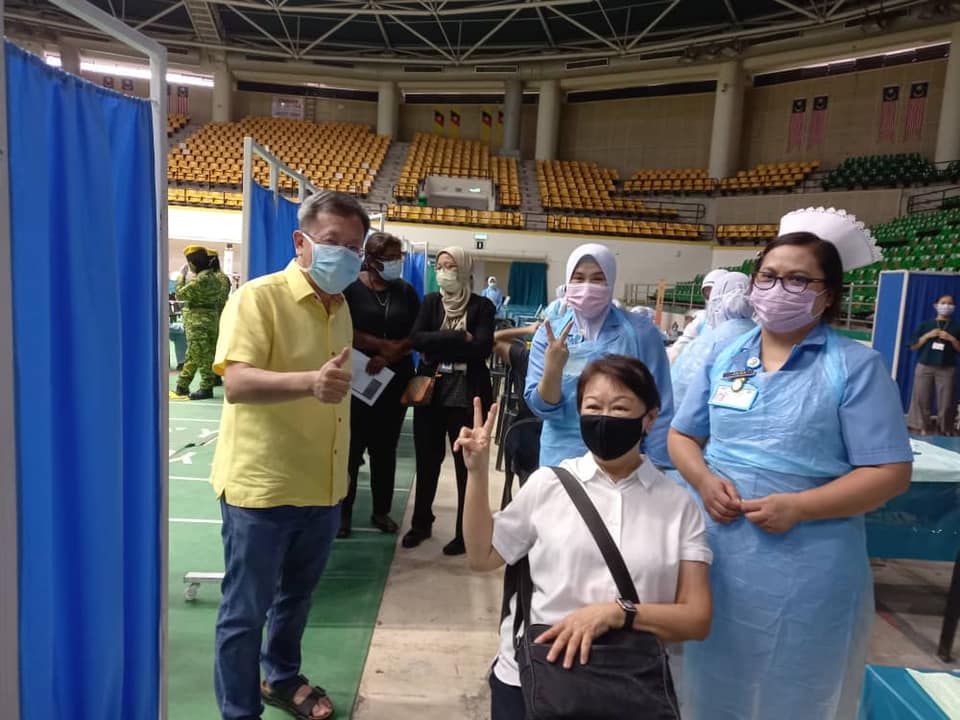KUALA LUMPUR, June 18 — An expert advisory group has criticised the lack of detail in the National Recovery Plan needed to allow Malaysia to exit the Covid-19 epidemic.
The Health and Sciences Covid-19 Advisory Group of Experts (EAG) said the National Recovery Plan by Prime Minister Muhyiddin Yassin on June 15 cannot be applied effectively without additional requirements:
- Trustworthy and competent leadership and governance.
- Effective, efficient, and inclusive vaccine rollout.
- Automation and digital Find, Test, Trace, Isolate and Support (FTTIS).
- Science-based decision-making and forward direction.
“The Health and Sciences Covid-19 Advisory Group of Experts’ (EAG) ground scan reveals that there are challenges in policy implementation and systemic gaps that prevent a true whole-of-government and whole-of-society approach.
“Moreover, the National Recovery Plan announced on 15 June 2021 lacks specificity and detail that will allow us to exit the pandemic effectively and safely,” EAG said in a statement today.
The group of medical experts also strongly highlighted that state elections can be a major threat to public health measures in combating the coronavirus transmission, citing the surge of new Covid-19 infections after the Sabah state election.
“Therefore, the EAG continues to hold out for no election until Malaysia reaches and maintains low transmission rates boosted by high vaccination rates and an overall safe economic and social space for managing the pandemic.”
Sarawak’s state election must be held within 60 days after the state of emergency is lifted on August 1. The Conference of Rulers recently said the state of emergency should not be extended beyond its original expiry date of August 1.
Vaccine Minister Khairy Jamaluddin said Wednesday that he expects Sarawak to achieve 80 per cent complete vaccination of the state’s total population by August. As of June 17, only 6.1 per cent of Sarawak’s population has been fully inoculated against Covid-19.
On June 15, Prime Minister Muhyiddin Yassin announced an exit strategy for Covid-19 epidemic that expects to see most movement restrictions lifted only by year end.
The plan, which consists of four phases of the Movement Control Order (MCO), uses indicators for phase transition based on daily Covid-19 cases (which depend on the amount of testing done), intensive care unit (ICU) bed occupancy rates, and coronavirus vaccination rates.
“It is critical and crucial that adequate public health measures are in place and clear health indicators are met before any election is called, whether at the state or federal level. Otherwise, the efforts of the past six months will be moot,” the advisory group mentioned.
EAG also pointed out that the government should consider the welfare and social effects towards an individual and society while embracing the situational public health measures based on the intensity of coronavirus transmission.
“Employing precision public health involves the decision to introduce, adapt or lift public health and social measures should be based primarily on a situational assessment of the intensity of transmission and the capacity of the health system to respond, but must also be considered in terms of the effects these measures may have on the general welfare of society and individuals.”
EAG, chaired by former Health director-general Dr Abu Bakar Suleiman, is an advisory group comprising representatives from the Academy of Medicine of Malaysia (Dr Rosmawati Mohamed), the Malaysian Medical Association (Dr Mary Cardosa), the Malaysian Public Health Physicians Association (Dr Fadzilah Kamaludin), and the Association of Private Hospitals of Malaysia (Dr Kuljit Singh), as well as infectious disease physician Dr Christopher Lee.








